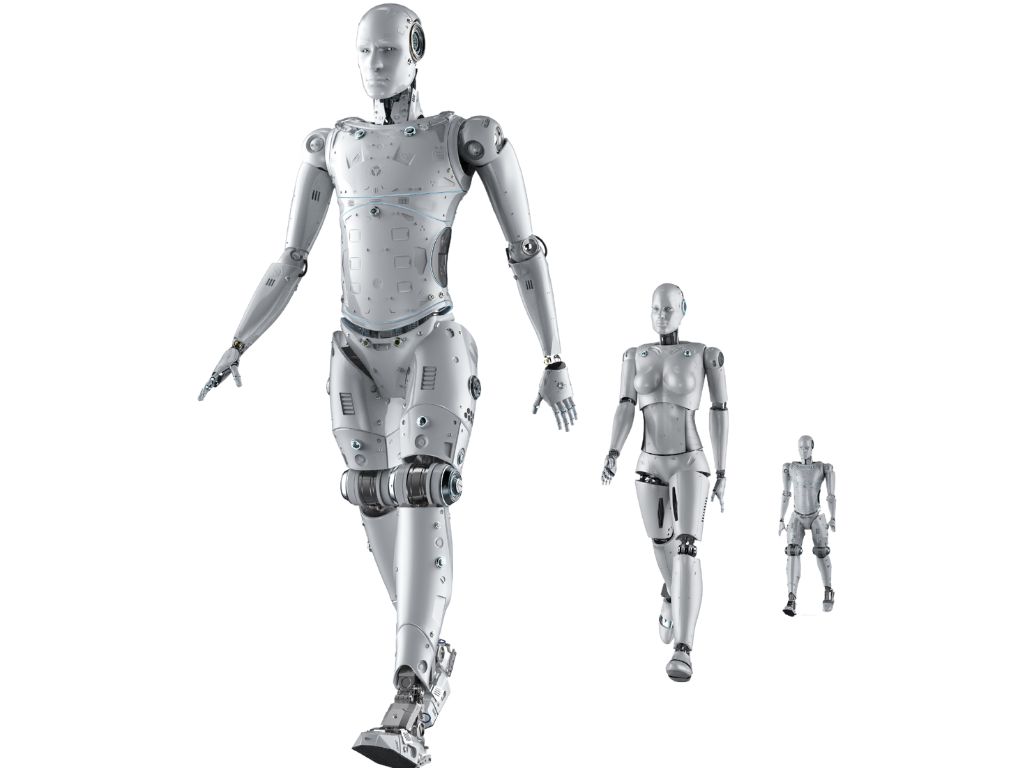Let us tell you something amazing. A long time ago, let’s say… 10 years ago, when someone mentioned AI (Artificial Intelligence), thoughts flew to robots conversing, computers that could play chess exceptionally well, and futuristic devices that could even make breakfast (think Pee-Wee Herman’s breakfast machine on steroids—for the younger ones reading this article, ask your older cousin or parents). However, now when someone mentions AI, there are mixed reactions. Some embrace the technological culture shift, some worry about what it means for their jobs, and others struggle to form a strong opinion on it.
Let us take you through time for a minute, if you will. Technology revolutions began much earlier than Bill Gates introducing us to Microsoft or Apple unveiling the first Mac. Apart from the Stone Age, we had the Industrial Revolution, where traditional ways of working started to get replaced; initially, it was a transition from hand production tools to machines. From steam power and chemical processing to mechanised factories. In the 1780s, at the start of the Industrial Revolution, people viewed these new technology advances with mixed feelings—some unsure if the mechanisms were effective and some believing they were more productive with the new technology.
Fast forward to today, AI comes in various forms, including the rise of ChatGPT from OpenAI, with partnerships from banks and large corporations like Microsoft, as well as local shopkeepers integrating their websites with a chatbot, making it seem like they’re always ‘Open’ in a competitive global climate.
Healthcare: AI systems developed by Google Health are currently used in NHS hospitals to diagnose diseases like cancer with great accuracy. Predictive Analysis is utilised to predict patient admission rates, supporting hospitals in managing resources more efficiently. With the current use of AI able to save the NHS £300 million annually and helping to make more informed decisions.
Transportation: With the UK looking to be a hub for autonomous vehicle development, there has been a strong investment in research for advanced AI tools to support the growing autonomous market. With the market expected to grow by £42 billion by 2030, potentially creating 38,000 new jobs.
Finance: Financial institutions in the UK are utilising AI technology more, especially in cases such as financial crime and fraudulent activities. With PwC expecting fraud detection to reduce cases by 50%.
Public Sector: AI tools are used by police forces to detect crime patterns and predict potential crime hotspots, enhancing the effectiveness of law enforcement.
A few more fun facts…
- The UK AI market is worth more than £16.8 billion and is expected to grow to £801.6 billion by 2035.
- The number of UK AI companies has increased by over 600%.
- The largest estimated net job gains from AI over the next 20 years are predicted to be in the UK’s health and social care sector.
Now, putting all of this into perspective, we can safely say that AI is our friend. As long as we have set goals and the capability to drive technical changes home, safely. That’s right, AI is not a foe, but a friend, and we at Change Management Library need to work out how this relationship looks and exactly what we want from it. As Change Management Experts, we’ve learned to embrace AI by understanding exactly what we want from it and then working with the tools to further work towards the solution. However, hand on our hearts, nothing can take away the human element of diverse thinking, creating, and delivering something that is going to revolutionise an industry, organisation or era—now that is truly amazing.
This approach underscores our commitment at Change Management Library to not only adapt to but also to lead in embracing technological advancements in a way that harmonizes with our human-centric values.
By Change Management Library
Sources:
https://www.england.nhs.uk/long-read/artificial-intelligence-ai-and-machine-learning/)
https://www.digitalhealth.net/2024/01/rewired-2024-doctors-roles-will-be-radically-redefined-by-ai/
https://www.england.nhs.uk/long-read/artificial-intelligence-ai-and-machine-learning/).
https://www.healthcareitnews.com/news/emea/uk-government-announce-36m-ai-research-boost-nhs
https://www.healthcareitnews.com/news/emea/uk-government-announce-36m-ai-research-boost-nhs
https://www.forbes.com/uk/advisor/business/software/uk-artificial-intelligence-ai-statistics-2023/

